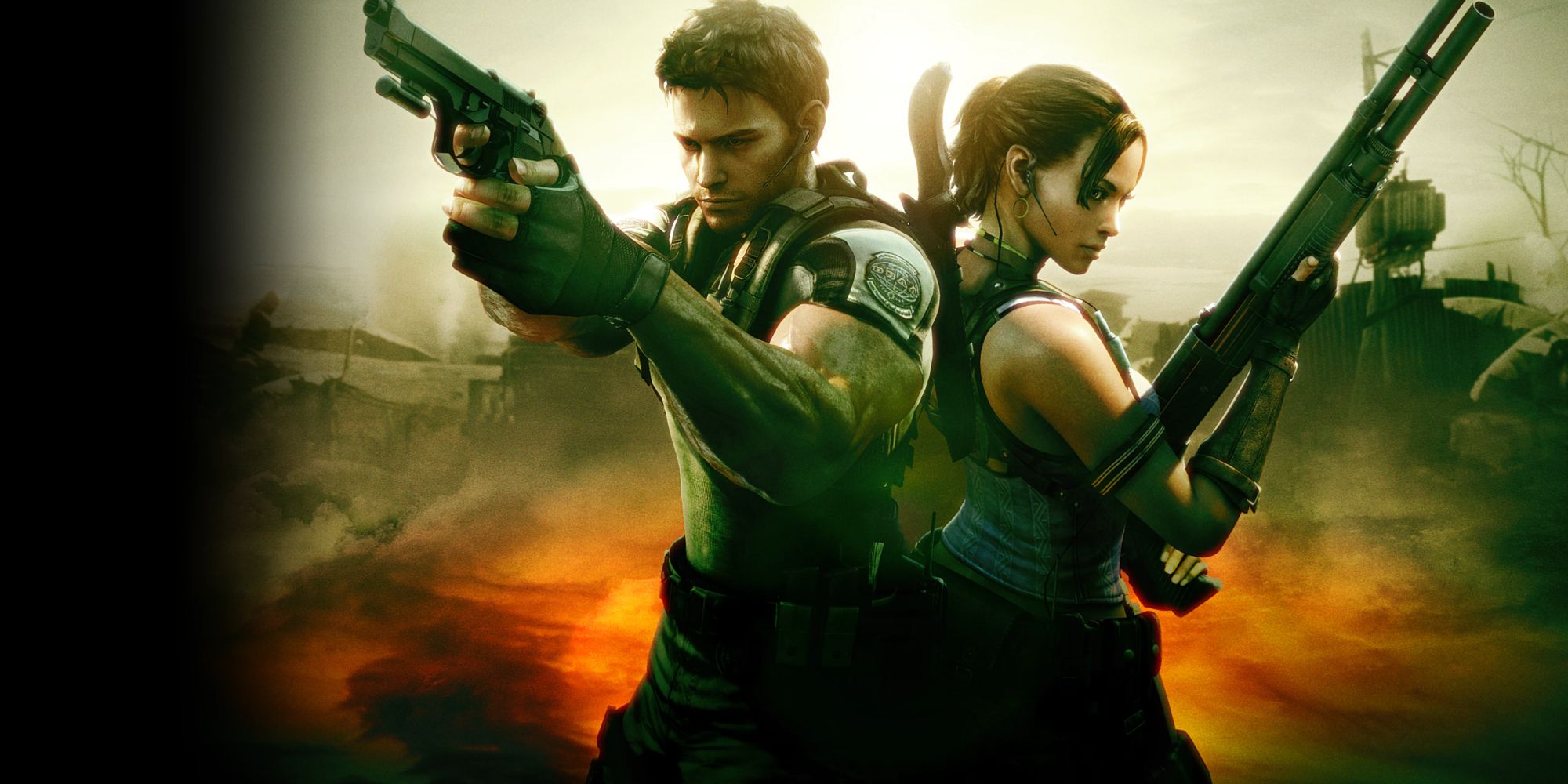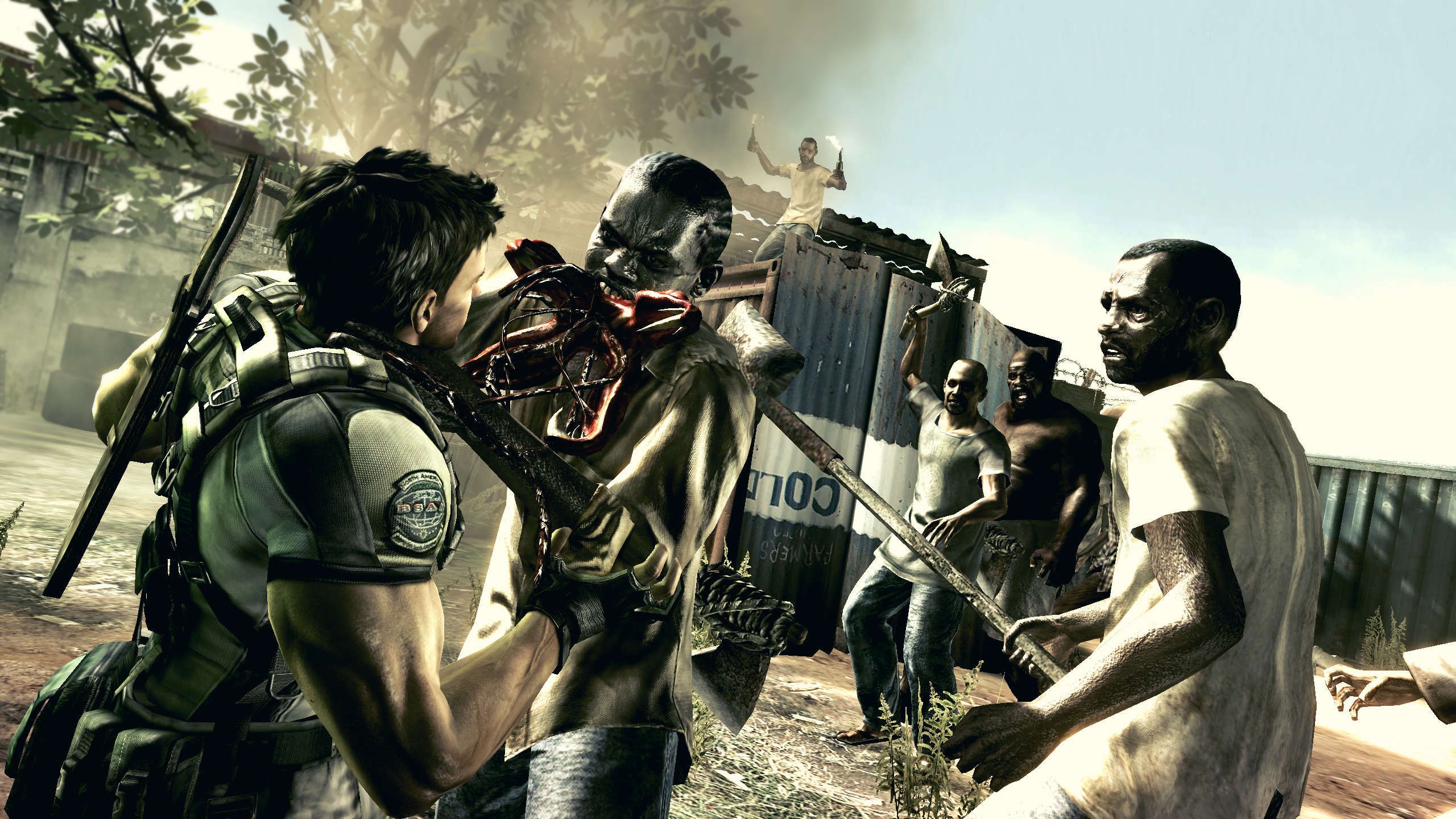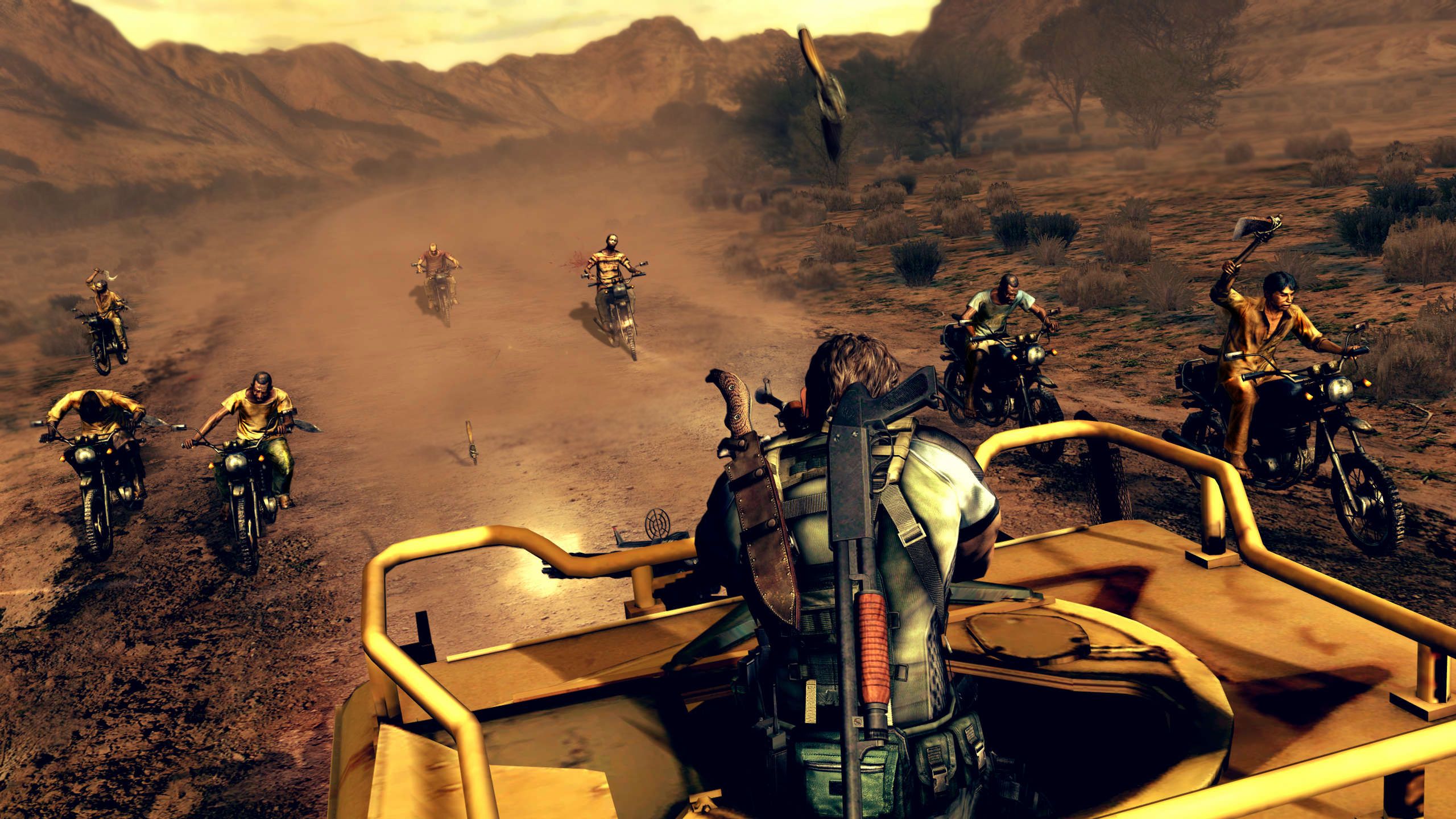Resident Evil loves a good remake. Capcom has been trading in reimaginings of its survival horror series since 2002 when the beloved original was brought back to life on the Nintendo GameCube. It’s a stellar remake, and the definitive version of a classic game. The same can be said for 2019’s Resident Evil 2, which many now consider the best in the series since it exploded onto the scene four years ago. 3 wasn't great, but I still had fun with its new spin on things. Now it’s Resident Evil 4’s turn. A game so nice they remastered it thrice, and now the remake treatment is set to introduce this banger to a new generation.
So what’s next?
Resident Evil 5 is the next logical step, given it’s a mostly iterative sequel with many of the same gameplay mechanics and set pieces. It also has mandatory co-op even if you’re playing alone, removing what little horror was left by giving you characters with twice the firepower. Resident Evil 4 influenced Gears of War, and in turn Resident Evil 5 looked at Gears of War and decided it needed a slice of that grey, edgy, and bloated pie. It’s not a bad game, but I’d struggle to describe it as anything more than a pale imitation. The game’s legacy is also eternally tainted by its racism. Intentional or not, it’s there.
I was still in primary school when Resident Evil 5 was first unveiled, so my understanding of racism and the historical role it plays in global sociopolitical culture was fairly lacking. I just wanted to murder zombies with my friends, it didn’t matter what colour they were or what country I happened to be in. The infection must be cleansed, and not putting my upgraded shotgun to use would be a tragic waste. But even back then, there was something uneasy about how the game depicted Africa, and the awkward marketing eager to focus on a white man waltzing into an impoverished town only to murder its inhabitants.
The reveal trailer that dropped in 2005 has deliberately vague descriptions of where it takes place or what the game is even about. Chris Redfield is back, this time without his bulging muscles, and is seen walking the quiet streets of a shanty town until an unseen horde of infected rushes his position. A gun is drawn before a ‘Biohazard 5’ logo splashes onto the screen. At first glance this trailer is pretty innocent, and early on enough in the game’s production that I’m unsure if certain locations and characters were even decided yet. The E3 2007 showing wasn’t nearly as lucky with its preview of the game’s opening, which, without the presence of your partner Sheva, boils down to a hench white dude beating the shit out of hostile African natives. This caused backlash at the time, with the hasty addition of a mixed race co-op partner making it seem like Capcom was trying its best to save face and pave over its unfortunate positioning.
You could argue that a game set in Africa is of course going to result in people of colour being infected, which is a valid point. That view falls away the moment Chris and Sheva venture into the swamplands and are immediately assaulted by natives donning bamboo skirts whose main mode of combat is throwing homemade spears while screaming in a dialect that feels ripped straight out of insensitive ‘30s cartoons. It’s difficult to defend and especially awkward to revisit all these years later.
In 2009, Africa had some of the world’s foremost universities situated in bustling urban metropolises, and yet Capcom decided to portray its people not as modern workers, but as savages in stereotypical tribal gear. It’s a trope as inaccurate as it is insensitive. Africa is a sprawling continent, and Resident Evil 5 views it as a singular entity with few worthwhile characteristics to underpin the people and cultures who call it home. It’s a generic and offensive interpretation of the continent. Perhaps this dodgy misstep would fly in 2009, but to remake it and fail to acknowledge how problematic it remains borders on complete ignorance.
I’m not saying a potential remake of Resident Evil 5 needs to abandon Africa entirely, only that major revisions are required for it to stand the test of time. The fourth is campy and far removed from reality in ways that allow it to lean into charming eccentricity, while Resi 5 is far more grounded, realistic, and oddly graphic in its visual execution. Everything feels a bit hopeless even as you venture underground to pilfer ancient ruins for treasures, stereotypes are reinforced with increased examples of vulgarity as the campaign tries to inject some manner of variety into its generic firefights. It’s bleak, and requires a far more extensive reimagining or even a full rewrite if it hopes to avoid causing offence and abandon its prior baggage. It’s not impossible though, and perhaps Resident Evil 4’s success will be a sign for Capcom to broach upon a new timeline, so it doesn’t remake every game in existence before having no idea where to go next. Take risks now and reap the ample rewards years down the line. After 5 comes 6, and trust me, nobody wants that.
Resident Evil is in dire need of its Final Fantasy 7 Remake moment. A bold new entry that establishes how dedicated it is to honouring the past while moving towards a bright future. Village could have achieved this, but instead leaned on the iconic status of 4 despite its own remake waiting patiently in the wings. It isn’t serious enough in its personality or lore to take on a setting like Africa and effectively interrogate the elements of race likely to dominate the minds of most players. Either abandon it or redefine it, otherwise a remake is doomed to repeat the same fatal mistakes. History will come knocking the second gamers are asked to confront Resident Evil 5’s polarising reputation, and how it marked a turning point in the franchise that almost spelt its end. Forge an innovative new path into the future without relying on a troubled past.



